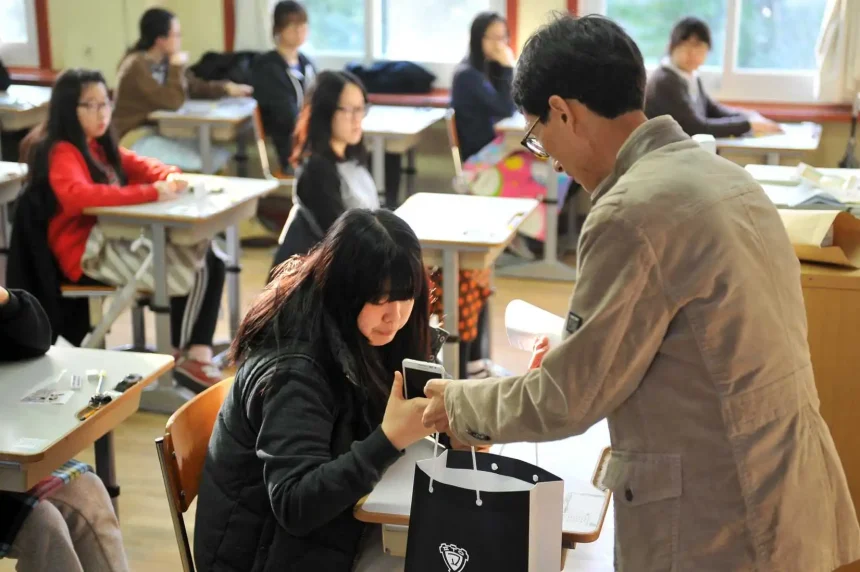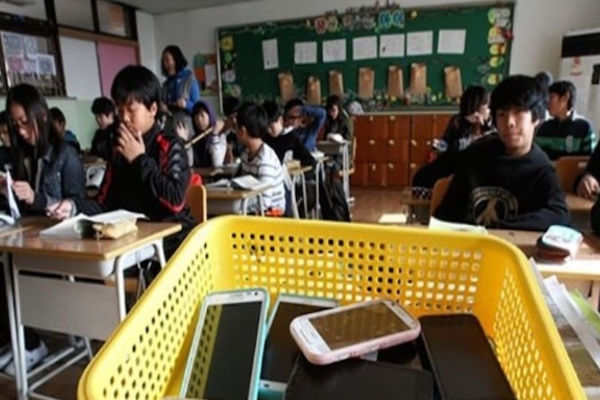South Korea has joined other nations in their efforts to limit the use of social media by children by passing a bill that forbids mobile phones in classrooms across the country, officials announced on Thursday.
Citing worries over student smartphone addiction, South Korea, one of the most technologically advanced countries in the world, has recently attempted to strengthen regulations on electronic devices in classrooms.
A National Assembly spokesman said that bill, which will go into effect in March of next year, forbids smart gadgets, including cell phones, in schools.

Read Also
The move makes South Korea the latest country to restrict social media use among schoolchildren, following similar steps in countries including Australia and the Netherlands.
According to a statement from Seoul’s Education Ministry, smartphones are prohibited in classrooms unless they are required for instructional purposes or as assistive technology for children with special education requirements or disabilities.
Additionally, it stated that the law creates a legal foundation for “limiting the possession and use of such devices to protect students’ right to learn and support teachers’ activities.”
But the country’s National Human Rights Commission recently changed its stance, saying limits on phone use for educational purposes do not breach rights, given their negative impact on students’ learning and emotional well-being.
Against this backdrop, the law was needed to ease social conflict “by clearly defining rules on smart device use in schools”, the lawmakers said in a document introducing the bill.
But it has drawn backlash from groups including the left-wing Jinbo Party, which said the law will “infringe on students’ digital rights and right to education”.





